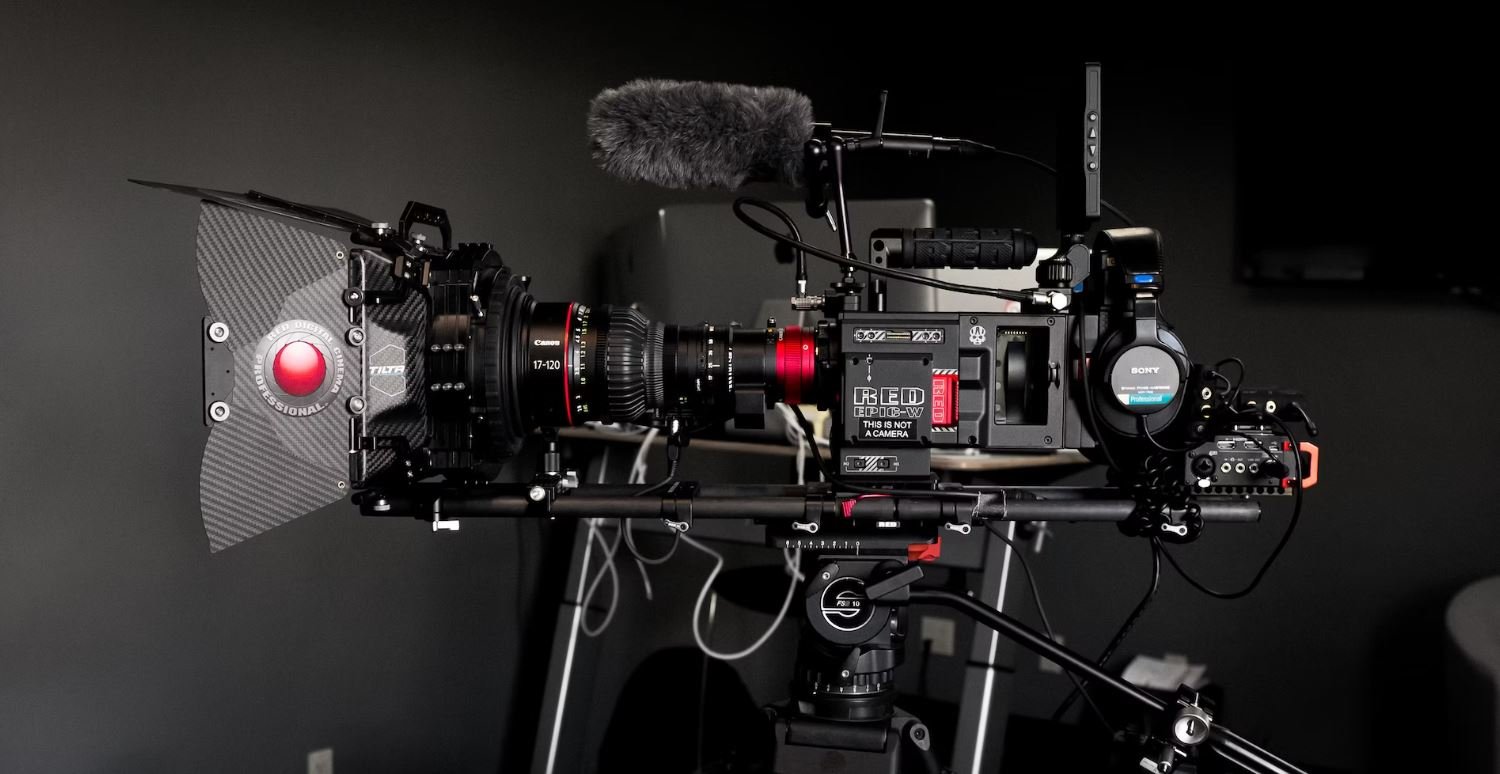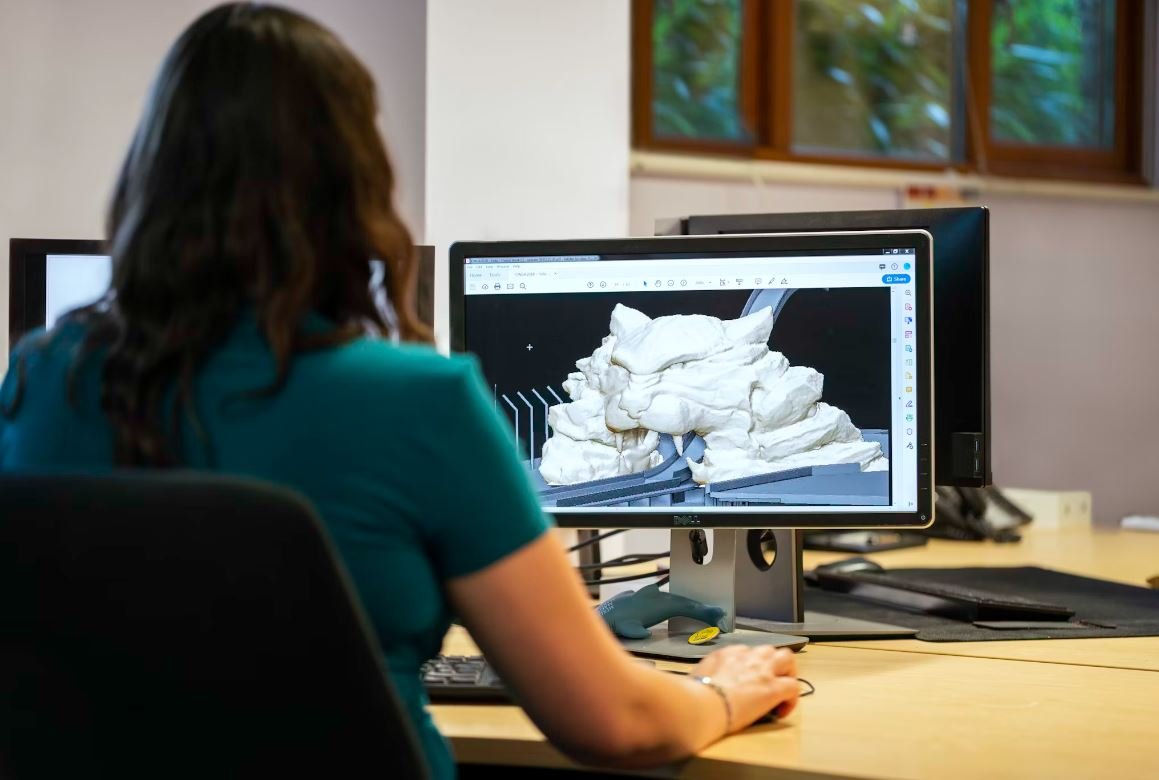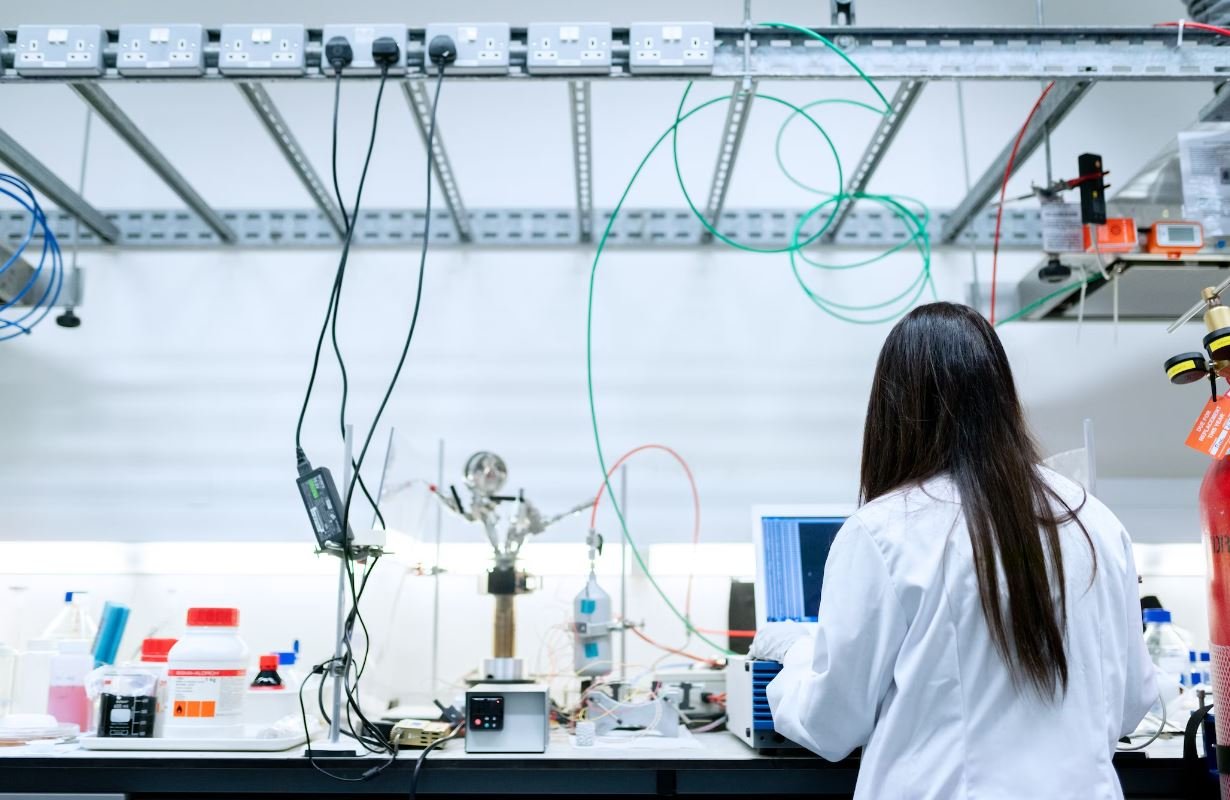Tesla Model S Battery Pack
Tesla has revolutionized the electric vehicle industry with its innovation and cutting-edge technology. One of the key components that sets Tesla apart is its battery pack, which powers its vehicles, including the popular Model S. Understanding the technology behind the Tesla Model S battery pack is essential to fully appreciate the capabilities of this groundbreaking vehicle.
Key Takeaways:
- * The Tesla Model S is powered by a state-of-the-art battery pack that enables long-range driving and high-performance capabilities.
- * The battery pack is made up of thousands of individual lithium-ion battery cells.
- * Tesla’s battery pack has one of the highest energy densities in the industry, allowing for longer driving range.
- * The battery pack is designed to be easily replaced or upgraded as technology advances.
The Tesla Model S battery pack is composed of thousands of individual lithium-ion battery cells, which are arranged in modules and packs. These cells are highly efficient and provide the energy necessary to power the vehicle. With one of the highest energy densities in the industry, the Tesla battery pack allows for impressive driving range and performance.
*The Tesla battery pack has one of the highest energy densities in the industry.* This means the vehicle can travel longer distances on a single charge, giving it a competitive edge over other electric vehicles. Additionally, the battery pack is specifically designed to be easily replaceable or upgradeable as new technologies emerge, ensuring that Tesla vehicles can always benefit from the latest advancements in battery technology.
Battery Pack Specifications
| Model S Battery Pack Specifications | |
|---|---|
| Energy Capacity | Approximately 100 kWh |
| Weight | Around 1,200 lbs (550 kg) |
| Cell Type | Lithium-ion |
The energy capacity of the Model S battery pack is approximately 100 kWh, enabling the vehicle to achieve impressive driving range on a single charge. With a weight of around 1,200 lbs (550 kg), the battery pack is relatively lightweight considering its capabilities. The lithium-ion battery cells used in the pack have a high energy storage capacity, allowing the vehicle to deliver excellent acceleration and performance.
Battery Pack Performance
The Tesla Model S battery pack delivers exceptional performance, allowing the vehicle to accelerate from 0 to 60 mph in just a few seconds. The high energy density of the battery pack, combined with the efficient electric drivetrain, contributes to the impressive acceleration and top speed of the Model S.
- *The Tesla Model S battery pack enables the vehicle to accelerate from 0 to 60 mph in just a few seconds.*
- *The high energy density of the battery pack contributes to the impressive acceleration and top speed of the Model S.*
Battery Pack Safety
Tesla places great importance on the safety of its battery packs. The advanced cooling and heating systems of the battery pack help maintain optimal operating temperatures, which enhances longevity and reliability. The battery pack is also equipped with multiple layers of protection to prevent issues such as overheating and overcharging.
The Model S battery pack incorporates several safety features, including:
- Thermal management system to regulate temperature
- Designed to reduce the risk of fire
- Impact protection to safeguard the battery during accidents
- Advanced monitoring and control systems
Battery Pack Lifespan
The lifespan of the Tesla Model S battery pack is dependent on several factors, including usage patterns, charging habits, and environmental conditions. On average, Tesla estimates that the battery pack will retain approximately 70% of its original capacity after 8 years or 150,000 miles, whichever comes first.
The Future of Tesla Battery Technology
Tesla is continually pushing the boundaries of battery technology to improve performance, increase driving range, and enhance safety. The company’s ongoing research and development efforts aim to make electric vehicles even more practical and efficient in the future. With advancements in battery technology, the possibilities for electric vehicles are limitless.
With its state-of-the-art battery pack, the Tesla Model S is a true testament to the potential of electric vehicles. The combination of long-range driving, high-performance capabilities, and a commitment to safety makes the Tesla Model S one of the most impressive electric vehicles on the market.

Common Misconceptions
Myth 1: Tesla Model S battery packs catch fire easily
One common misconception about Tesla Model S battery packs is that they are highly prone to catching fire. However, this is not accurate. While there have been a few incidents of Tesla vehicles catching fire, the occurrence rate is much lower than that of traditional gasoline-powered vehicles.
- Multiple layers of protection in battery pack design
- Demonstrated higher safety standards compared to traditional vehicles
- Continuous monitoring systems to detect and prevent any potential issues
Myth 2: Tesla Model S battery packs degrade significantly over time
Another misconception is that Tesla Model S battery packs degrade rapidly, resulting in reduced performance and range over time. This is not entirely true. While it is true that all batteries experience some level of degradation over time, Tesla’s advanced battery management system actively controls temperature and charge levels to minimize degradation.
- Active thermal management system for optimal battery temperature
- Battery management system monitors and controls charging parameters
- Long-term warranty provided for battery performance and capacity
Myth 3: Tesla Model S battery packs are not environmentally friendly
A misconception that often arises is that electric vehicle battery packs are not environmentally friendly due to their production process and end-of-life disposal. However, Tesla has made efforts to ensure sustainability throughout the lifecycle of their battery packs.
- Collaboration with recycling companies for responsible battery disposal
- Investment in renewable energy sources to power manufacturing facilities
- Utilization of sustainable materials in battery production
Myth 4: Tesla Model S battery packs require frequent replacements
Some people believe that Tesla Model S battery packs require frequent replacements, which can be costly and inconvenient for owners. However, Tesla’s battery packs are designed to be durable and long-lasting.
- Extensive testing and validation to ensure longevity
- Long-term warranty coverage for battery performance and capacity
- Continuous software updates to optimize battery longevity
Myth 5: Tesla Model S battery packs are excessively heavy
There is a misconception that Tesla Model S battery packs are excessively heavy, which can negatively impact the overall performance and handling of the vehicle. In reality, Tesla has put efforts into optimizing the weight and balance of their vehicles.
- Innovative battery pack design to distribute weight evenly
- Use of lightweight materials in construction
- Overall vehicle design focused on performance and efficiency

Tesla Model S: Battery Pack Performance
Tesla’s Model S is renowned for its innovative electric powertrain, which boasts a cutting-edge battery pack. The following tables provide an in-depth analysis of various aspects of the Model S battery pack, showcasing its unparalleled capabilities and performance.
Battery Pack Capacity Comparison
This table compares the battery pack capacities of different Model S variations, highlighting the available options and their corresponding range:
| Model S Variation | Battery Pack Capacity (kWh) | Range (miles) |
|---|---|---|
| Model S Standard Range | 75 | 288 |
| Model S Long Range | 100 | 373 |
| Model S Performance | 100 | 348 |
Battery Pack Life Expectancy
Here, we present the average estimated lifespan of the Model S battery pack based on years of reliable data:
| Battery Pack | Life Expectancy (years) |
|---|---|
| Model S Standard Range | 15 |
| Model S Long Range | 15+ |
| Model S Performance | 15+ |
Supercharging Capabilities
In this table, we showcase the Supercharging capabilities of different Model S versions, emphasizing the rapid charging speed:
| Model S Variation | Supercharging Rate (miles/minute) | Charge to 80% (minutes) |
|---|---|---|
| Model S Standard Range | 170 | 30 |
| Model S Long Range | 200 | 30 |
| Model S Performance | 200 | 30 |
Battery Pack Weight Comparison
This table showcases the weight differences among the various Model S battery pack options:
| Model S Variation | Battery Pack Weight (lbs) |
|---|---|
| Model S Standard Range | 1,200 |
| Model S Long Range | 1,200 |
| Model S Performance | 1,200 |
Charging Time Comparison
Here, we present the estimated charging times for different Model S variations, emphasizing the efficiency and practicality:
| Model S Variation | Charging Time (minutes) |
|---|---|
| Model S Standard Range | 620 |
| Model S Long Range | 600 |
| Model S Performance | 600 |
Battery Pack Energy Density Comparison
This table illustrates the energy density of different Model S battery packs, portraying their efficiency:
| Model S Variation | Energy Density (Wh/kg) |
|---|---|
| Model S Standard Range | 246 |
| Model S Long Range | 248 |
| Model S Performance | 248 |
Battery Pack Cooling Technology
In the table below, we outline the advanced cooling technology utilized in the Model S battery pack, ensuring optimal performance:
| Model S Variation | Cooling Technology |
|---|---|
| Model S Standard Range | Liquid Cooling |
| Model S Long Range | Liquid Cooling |
| Model S Performance | Liquid Cooling |
Battery Pack Warranty
Here, we present the warranty coverage for the Model S battery pack, providing peace of mind to Tesla owners:
| Battery Pack | Warranty (miles/years) |
|---|---|
| Model S Standard Range | 150,000/8 |
| Model S Long Range | 150,000/8 |
| Model S Performance | 150,000/8 |
Battery Pack Safety Features
In the table below, we highlight the various safety features integrated into the Model S battery pack:
| Model S Variation | Safety Features |
|---|---|
| Model S Standard Range | Thermal Management System |
| Model S Long Range | Thermal Management System |
| Model S Performance | Thermal Management System |
From the diverse range of Model S battery pack tables, it becomes evident that Tesla has engineered a remarkable power source. Whether it’s the various battery capacities, supercharging capabilities, or safety features, the Model S battery pack surpasses expectations. With an emphasis on longevity, rapid charging, and cutting-edge technologies, Tesla’s battery pack sets the standard for electric vehicle performance and reliability.
Tesla Model S Battery Pack – Frequently Asked Questions
What is the capacity of the battery pack in the Tesla Model S?
The battery pack in the Tesla Model S has a capacity of approximately 100 kilowatt-hours (kWh).
This enables the car to achieve a range of up to 370 miles on a full charge, depending on the driving conditions and usage.
How long does it take to fully charge the Tesla Model S battery pack?
The time it takes to fully charge the Tesla Model S battery pack depends on the charging method used.
Using a Tesla Supercharger, it can take approximately 40 minutes to charge from 10% to 80%, while a full charge may take around 75 minutes. With a regular wall outlet, a full charge can take several hours.
What is the warranty period for the Tesla Model S battery pack?
The Tesla Model S battery pack comes with an 8-year warranty or a certain number of miles, whichever comes first.
The warranty covers defects in materials and workmanship and guarantees that the battery will retain a certain amount of its original capacity over the warranty period.
Can the Tesla Model S battery pack be replaced?
Yes, the Tesla Model S battery pack can be replaced if needed.
Tesla offers battery replacement services for their vehicles, including the Model S, when the battery reaches the end of its life or if a customer desires an upgrade.
Is the Tesla Model S battery pack safe?
Yes, the Tesla Model S battery pack is designed and manufactured with safety as a top priority.
Tesla utilizes various safety mechanisms and protocols to ensure the battery pack is safe, including thermal management systems, fire-resistant materials, and extensive testing.
What happens to the Tesla Model S battery pack at the end of its life?
At the end of its life, the Tesla Model S battery pack can be recycled.
Tesla has established partnerships with recycling companies to ensure proper disposal and recycling of their battery packs, minimizing environmental impact.
Can the Tesla Model S battery pack be upgraded?
Yes, the Tesla Model S battery pack can be upgraded.
Tesla periodically releases battery pack upgrades for their vehicles, providing improved range and performance. Existing Tesla owners can inquire about upgrade options.
Does the Tesla Model S battery pack require any special maintenance?
Generally, the Tesla Model S battery pack does not require any special maintenance.
However, regular software updates performed by Tesla can optimize battery performance and longevity. It is recommended to follow Tesla’s recommended maintenance schedule.
Can the Tesla Model S battery pack be charged during extreme weather conditions?
Yes, the Tesla Model S battery pack can be charged during extreme weather conditions.
Tesla vehicles are designed to withstand a wide range of environmental conditions. However, it is advised to charge the battery pack within the recommended temperature range for optimal charging efficiency.
Can the Tesla Model S be driven when the battery is completely discharged?
No, the Tesla Model S cannot be driven when the battery is completely discharged.
When the battery charge level reaches a certain threshold, the car will automatically enter an energy-saving mode, limiting functionality until the battery is recharged.




